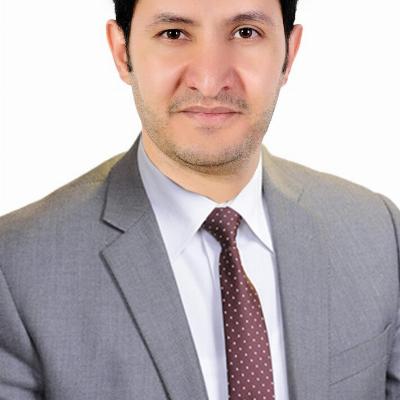The "Feasibility Analysis and Business Planning" course is a meticulously designed program aimed at providing professionals with an in-depth understanding of how to effectively assess and plan business ventures. This comprehensive course is structured into twelve well-thought-out modules, each focusing on a critical aspect of feasibility and business planning. Starting with the essentials in Module 1, participants will explore the fundamental concepts and importance of feasibility studies, and understand how they differ from and complement business plans. This foundational knowledge sets the stage for a deeper exploration into the various dimensions of feasibility analysis.
As the course progresses into Modules 2 through 4, participants delve into technical, economic, and financial feasibility analyses. These modules are crafted to equip learners with skills to assess current capabilities and resources, understand the impact of technology, and navigate the complexities of market dynamics. The emphasis is on practical techniques such as risk-adjusted DCF and NPV methods, providing a robust framework for financial decision-making. This approach ensures a balanced understanding of both the opportunities and risks inherent in business planning.
Leadership and communication are at the heart of Modules 5 through 7, where the focus shifts to the human element in feasibility processes. Here, participants learn how to craft compelling feasibility reports, engage stakeholders effectively, and present business plans persuasively. The course emphasizes the importance of leadership in guiding projects through feasibility stages and the critical role of clear, engaging communication in business planning. This segment of the course is designed to enhance participants' leadership skills, ensuring they are well-equipped to lead feasibility studies and present their findings confidently.
The course concludes with Modules 8 through 12, which cover advanced financial analysis, legal considerations, cultural and social impacts, environmental sustainability, and practical application. These modules offer a deeper dive into specialized areas, ensuring participants are well-versed in complex aspects such as legal compliance, social responsibility, and environmental sustainability. The course culminates in practical application, where participants get to apply their learning through case studies and role-playing, reinforcing their understanding and preparing them to tackle real-world challenges.
"Feasibility Analysis and Business Planning" is more than just a course; it's an immersive experience designed to equip professionals with the tools, knowledge, and confidence to make informed, strategic decisions in business planning and feasibility analysis. This program is ideal for anyone looking to enhance their skills in assessing, planning, and executing business ventures with a comprehensive, strategic approach.
- Entrepreneurs and Startup Founders: Individuals who are planning to start their own business or are in the early stages of their startup. They will benefit from learning how to conduct thorough feasibility studies and create robust business plans.
- Business Managers and Executives: Professionals who are responsible for strategic planning and decision-making within their organizations. The course will help them to assess the viability of new projects or business expansions.
- Project Managers and Coordinators: Individuals who oversee projects and need to understand the feasibility and planning aspects to ensure successful outcomes.
- Financial Analysts and Advisors: Professionals who provide financial advice and need to understand the intricacies of feasibility studies and business planning to better advise their clients.
- Marketing Professionals: Those who need to assess the market feasibility of new products or services and integrate this into broader business strategies.
- Consultants: Business or management consultants who assist clients with feasibility analysis, business planning, and strategic decision-making.
- Investors and Venture Capitalists: Individuals responsible for evaluating potential investments in startups or business ventures. This course provides insights into what makes a feasible and sustainable business model.
- Economic Development Professionals: Those involved in regional or urban planning, who need to evaluate the feasibility and impact of economic development projects.
This course is designed to be beneficial for a wide array of professionals across different sectors, providing them with practical tools and knowledge to make informed decisions about new ventures, projects, or strategic directions.
- Conduct Comprehensive Feasibility Studies: Understand and apply various methodologies to conduct detailed feasibility studies, assessing technical, economic, commercial, financial, and environmental aspects of business ventures
- Develop and Analyze Business Plans: Gain proficiency in creating, evaluating, and refining business plans, integrating insights from feasibility studies to ensure robust and viable business strategies
- Assess Financial Viability: Employ advanced financial analysis techniques, including risk-adjusted DCF and NPV methods, to evaluate the financial sustainability of projects or business ideas
- Understand Legal and Regulatory Frameworks: Identify and navigate the legal and regulatory considerations relevant to new ventures, including compliance, licensing, and environmental regulations
- Evaluate Market Dynamics and Risks: Analyze market conditions, competition, and potential risks, using this information to make informed decisions about project feasibility and business planning
- Lead and Communicate Effectively: Enhance leadership skills, particularly in the context of project management and feasibility processes, and improve the ability to communicate feasibility study findings and business plans effectively to stakeholders
- Incorporate Sustainability and Social Responsibility: Assess and integrate environmental sustainability and social responsibility considerations into business planning and decision-making
- Manage and Mitigate Risks: Apply comprehensive risk management strategies, including risk estimation and response planning, to minimize and handle potential risks in business projects
- Engage Stakeholders and Build Support: Develop strategies for identifying, engaging, and gaining support from key stakeholders, ensuring alignment and backing for business initiatives
- Apply Knowledge to Real-world Scenarios: Use case studies and role-playing exercises to apply learned concepts to real-world situations, enhancing practical understanding and problem-solving skills
- Formulate Action Plans for Implementation: Create actionable plans for applying the concepts learned in the course to their own business projects or roles, ensuring immediate and practical application of their new skills






- Concept and Importance of Feasibility Studies
- Differences Between Feasibility Studies and Business Plans
- Components and Process of Feasibility Analysis
- Assessing Current Capabilities and Resources
- Technology Risks and Innovations in Feasibility
- Base-Load Business Impact and Sustainability
- Marketing, Tariffs, and Quotas Considerations
- Risk-Adjusted DCF and NPV Methods
- Cost Analysis, ROI, and Financial Forecasting
- Crafting and Presenting Feasibility Reports
- Stakeholder Identification and Management Support
- Role of Project Leaders in Feasibility Studies
- Project Requirements and Option Selection
- Risk Estimation and Management in Feasibility
- Developing Effective Feasibility Reports
- Business Plan Presentation Tips and Case Studies
- Engaging Communication in Business Planning
- Advanced Techniques in Financial Forecasting and Modeling
- Integrating Market Dynamics and Economic Indicators in Feasibility Analysis
- Scenario Planning and Sensitivity Analysis in Financial Projections
- Understanding Legal Frameworks and Compliance Requirements
- Navigating Zoning, Licensing, and Environmental Regulations
- Intellectual Property Considerations in New Ventures
- Assessing the Social and Cultural Impact of Business Ventures
- Community Engagement and Social Responsibility in Feasibility Studies
- Evaluating Long-term Socio-economic Benefits and Challenges
- Environmental Impact Assessment and Sustainable Development Goals
- Incorporating Green Technologies and Eco-friendly Practices
- Analyzing Long-term Environmental Risks and Mitigation Strategies
- Case Studies and Role-Playing for Application
- Reviewing Lessons Learned and Action Plans












Training can take place in 4 formats:
- Self-paced
- Blended learning
- Instructor-led online (webinar)
- Instructor-led offline (classroom)
Description of training formats:
- Self-paced learning or e-Learning means you can learn in your own time and control the amount of material to consume. There is no need to complete the assignments and take the courses at the same time as other learners.
- Blended learning or "hybrid learning" means you can combine Self-paced learning or e-Learning with traditional instructor-led classroom or webinar activities. This approach requires physical presence of both teacher and student in physical or virtual (webinars) classrooms or workshops. Webinar is a seminar or presentation that takes place on the internet, allowing participants in different locations to see and hear the presenter, ask questions, and sometimes answer polls.
- Instructor-led training, or ILT, means that the learning can be delivered in a lecture or classroom format, as an interactive workshop, as a demonstration under the supervision and control of qualified trainer or instructor with the opportunity for learners to practice, or even virtually, using video-conferencing tools.
When forming groups of students, special attention is paid to important criteria - the same level of knowledge and interests among all students of the course, in order to maintain stable group dynamics during training.
Group dynamics is the development of a group in time, which is caused by the interaction of participants with each other and external influence on the group. In other words, these are the stages that the training group goes through in the process of communicating with the coach and among themselves.
The optimal group size for different types of training:
- Self-paced / E-learning: 1
- Instructor-led off-line (classroom): 6 – 12
- Instructor-led on-line (webinar): 6 – 12
- Blended learning: 6 – 12
- Workshop: 6 – 12
- On-the-job: 2 – 4
- Simulator: 1 – 2
Feedback in the form of assessments and recommendations is given to students during the course of training with the participation of an instructor and is saved in the course card and student profile.
In order to control the quality of the services provided, students can evaluate the quality and training programme. Forms of assessment of the quality of training differ for courses with the participation of an instructor and those that are held in a self-paced format.
For courses with an instructor, start and end dates are indicated. At the same time, it is important to pay attention to the deadlines for passing tests, exams and practical tasks. If the specified deadlines are missed, the student may not be allowed to complete the entire course programme.
A personal account is a space for storing your training preferences, test and exam results, grades on completed training, as well as your individual plan for professional and personal development.
Users of the personal account have access to articles and blogs in specialized areas, as well as the ability to rate the completed training and leave comments under the articles and blogs of our instructors and technical authors
Registered users of a personal account can have various roles, including the role of a student, instructor or content developer. However, for all roles, except for the student role, you will need to go through an additional verification procedure to confirm your qualifications.
Based on the results of training, students are issued a certificate of training. All training certificates fall into three main categories:
- Certificate of Attendance - students who successfully completed the course but did not pass the tests and exams can apply for a certificate of attendance.
- Certificate of Completion - students who have successfully completed a course could apply for a Certificate of Completion, this type of certificate is often required for compliance training.
- Verified Certificate - it is a verified certificate that is issued when students have passed exams under the supervision of a dedicated proctor.
You can always download a copy of your training certificate in PDF format in your personal account.
You will still have access to the course after completing it, provided that your account is active and not compromised and Tecedu is still licensed for the course. So if you want to review specific content in the course after completing it, or do it all over again, you can easily do so. In rare cases, instructors may remove their courses from the Tecedu marketplace, or we may need to remove a course from the platform for legal reasons.
During the training, you may encounter various forms of testing and knowledge testing. The most common assessment methods are:
- preliminary (base-line assessment) - to determine the current level of knowledge and adapt the personal curriculum
- intermediate - to check the progress of learning
- final - to complete training and final assessment of knowledge and skills, can be in the form of a project, testing or practical exam
Travel to the place of full-time training is not included in the cost of training. Accommodation during full-time studies can be included in the full board tuition fees.
While Tecedu is not an accredited institution, we offer skills-based courses taught by real experts in their field, and every approved, paid course features a certificate of completion or attendance to document your accomplishment.
You can preview samples of the training materials and review key information about the course on our website. You can also review feedback and recommendations from students who already completed this course.
We want you to be happy, so almost all purchased courses can be returned within 30 days. If you are not satisfied with the course, you can request a refund, provided the request complies with our return policy.
The 30-day money back policy allows students to receive quality teaching services with minimal risk, we must also protect our teachers from fraud and provide them with a reasonable payment schedule. Payments are sent to instructors after 30 days, so we will not process refund requests received after the refund period.
We reserve the right, in our sole discretion, to limit or deny refund requests in cases where we believe there is refund abuse, including but not limited to the following:
- A significant portion of the course has been consumed or downloaded by a student before the refund was requested.
- Multiple refunds have been requested by a student for the same course.
- Excessive refunds have been requested by a student.
- Users whose account is blocked or access to courses is disabled due to violation of our Terms and Conditions or the Rules of Trust and Security.
- We do not grant refunds for any subscription services.
- These refund restrictions will be enforced to the extent permitted by applicable law.
We accept most international credit and debit cards like Visa, MasterCard, American Express, JCB and Discover. Bank Transfers also may be an option.
Conducting classes is based on the fact that the teacher demonstrates text, drawings, graphics, presentations on an interactive board, while the content appears in the student's electronic notebook. A specially designed digital notepad and pen are used to create and edit text and images that can be redirected to any surface via a projector.
Classes are live streamed online, automatically recorded and published on the Learning Portal, allowing you to save them for reuse anytime, anywhere, on any mobile device. This makes it possible not to miss classes and keep up with classes and keep up with the passage of new material.
Real-life training uses the principles of game organization, which allows future professionals to rehearse and hone their skills in a virtual emergency. Learning as a game provides an opportunity to establish a connection between the learning activity and real life.
The technology provides the following learning opportunities:
- Focused on the needs of the user
- Instant feedback
- Independent decision making and choice of actions
- Better assimilation and memorization of the material
- Adaptive pace of learning tailored to the individual needs of the student
- Better transfer of skills learned in a learning situation to real conditions
Basic principles of training:
- A gradual increase in the level of difficulty in the game;
- Using a simplified version of a problem situation;
- Action in a variable gaming environment;
- The right choice is made through experimentation.
The main advantages of Game Based Learning technology:
- Low degree of physical risk and liability
- Motivation to learn while receiving positive emotions from the process;
- Practice - mirroring the real situation
- Timely feedback
- Choice of different playing roles
- Learning in collaboration
- Developing your own behavior strategy
Conducting practical classes online using remote access technologies for presentations, multimedia solutions and virtual reality:
- Laboratory workshops that simulate the operation of expensive bench equipment in real production
- Virtual experiment, which is visually indistinguishable from a remote real experiment performed
- Virtual instruments, which are an exact copy of real instruments
- Mathematical modeling to clarify the physical characteristics, chemical content of the investigated object or phenomenon.















